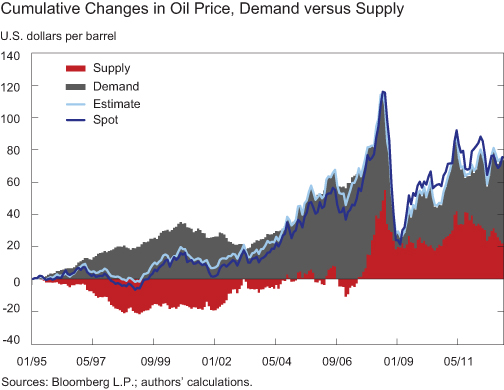Oil Supply Shocks: How The Airline Industry Is Feeling The Heat

Table of Contents
The Direct Impact of Rising Fuel Costs on Airlines
Rising oil prices directly translate into higher operating costs for airlines, significantly impacting their bottom line. Jet fuel is, after labor, their single largest expense, making them particularly susceptible to price volatility in the oil market.
Increased Operating Expenses
- Higher fuel costs reduce profit margins: Even a small increase in oil prices can drastically reduce airline profitability, especially for airlines operating on thin margins. This necessitates careful financial planning and proactive cost-cutting measures.
- Airlines may need to cut other operational budgets: To offset increased fuel expenses, airlines may be forced to reduce spending in other areas, potentially impacting maintenance, staff training, or marketing initiatives. This can have long-term consequences for operational efficiency and customer satisfaction.
- Fuel hedging strategies become crucial, but are not always effective against sudden shocks: Many airlines utilize hedging strategies, such as purchasing fuel futures contracts, to lock in prices and mitigate risk. However, unforeseen events and extreme price swings can still render these strategies ineffective. The recent oil supply shocks have demonstrated the limitations of even the most sophisticated hedging techniques.
The Inelastic Nature of Demand
While airlines can implement fuel-saving measures, the demand for air travel is relatively inelastic in the short term. This means that significant price increases may not proportionately reduce passenger numbers, especially for essential travel.
- Passengers are often willing to absorb some price increases, especially for essential travel: Business travelers and those with urgent personal matters often prioritize travel regardless of price fluctuations within reasonable limits.
- Airlines may struggle to fully pass on increased fuel costs to consumers: The competitive nature of the airline industry limits the extent to which airlines can pass increased fuel costs directly onto consumers through higher ticket prices. This can lead to a squeeze on profitability.
- This can lead to reduced profitability: The inability to fully offset increased fuel costs through price increases ultimately leads to lower profit margins and reduced profitability for the airline industry.
Indirect Impacts of Oil Supply Shocks on the Airline Industry
Oil supply shocks have far-reaching consequences, impacting the airline industry beyond simply rising fuel costs. These indirect effects often exacerbate the challenges posed by direct cost increases.
Economic Downturn and Reduced Travel
Oil supply shocks frequently contribute to broader economic instability. This often leads to reduced consumer spending and a subsequent decrease in air travel demand, particularly for discretionary travel.
- Recessions typically impact discretionary spending, including air travel: During economic downturns, consumers tend to cut back on non-essential spending, and air travel often falls into this category.
- Businesses may cut back on air travel for conferences and meetings: Companies may opt for video conferencing or postpone non-critical travel to reduce expenses during periods of economic uncertainty.
- Tourism may decline, impacting airlines' revenue from leisure travel: Reduced consumer confidence and higher travel costs can negatively affect tourism, leading to a decrease in leisure travel and impacting airlines' revenue streams.
Supply Chain Disruptions
Oil supply shocks can disrupt global supply chains, affecting the availability of critical components and services needed for airline operations.
- Delays in aircraft maintenance can lead to grounded planes and operational inefficiencies: Shortages of spare parts or delays in maintenance services can ground aircraft, disrupting schedules and impacting operational efficiency.
- Shortages of critical parts can impact aircraft availability: The availability of essential aircraft parts can be significantly impacted, leading to delays and cancellations. This can have significant knock-on effects on airline schedules and profitability.
- Disruptions at airports due to fuel shortages can cause flight cancellations and delays: Fuel shortages at airports can lead to widespread flight disruptions, affecting both passengers and airline operations.
Strategies Airlines are Employing to Mitigate the Effects of Oil Supply Shocks
Airlines are actively pursuing various strategies to mitigate the impact of oil supply shocks and maintain operational efficiency and profitability.
Fuel Efficiency Measures
Airlines are investing heavily in fuel-efficient technologies and implementing operational strategies to reduce fuel consumption.
- Adopting newer, more fuel-efficient aircraft models: Modern aircraft designs incorporate technological advancements that significantly improve fuel efficiency.
- Optimizing flight routes and reducing unnecessary fuel burn: Airlines are employing advanced route-planning software and techniques to optimize flight paths and minimize fuel consumption.
- Implementing weight-reduction strategies: Reducing the weight of aircraft through efficient cargo loading and other measures can lead to significant fuel savings.
Hedging Strategies
While not a foolproof method, airlines utilize financial instruments like futures contracts to hedge against future oil price increases.
- Futures contracts can help mitigate price volatility but are not risk-free: Futures contracts allow airlines to lock in fuel prices at a future date, but they still carry inherent risks associated with market fluctuations.
- The effectiveness of hedging depends on the accuracy of price forecasts: The accuracy of price predictions is crucial for effective hedging. Unforeseen events can render even well-planned hedging strategies less effective.
- Hedging strategies often require specialized expertise: Implementing and managing hedging strategies requires specialized financial expertise and careful risk management.
Pricing Strategies and Ancillary Revenue
Airlines are adjusting their pricing strategies to account for increased fuel costs and are exploring ways to boost ancillary revenue.
- Dynamic pricing models that adjust fares based on demand and fuel prices: Airlines are increasingly using sophisticated dynamic pricing models to adjust ticket prices based on real-time demand and fuel costs.
- Increasing fees for checked baggage, seat selection, and other services: Airlines are generating additional revenue streams by charging fees for various ancillary services.
- Focusing on premium cabin sales to improve revenue per passenger: Targeting higher-paying passengers in premium cabins helps to offset increased operating costs.
Conclusion
Oil supply shocks pose a significant challenge to the airline industry, impacting profitability and operational efficiency. The industry's response involves a multifaceted approach, including fuel efficiency improvements, hedging strategies, and pricing adjustments. Understanding the dynamics of oil supply shocks and their impact on the airline industry is crucial for both industry players and consumers. Staying informed about oil supply shocks and their potential consequences will allow you to navigate the volatile market with greater understanding. Monitoring oil price volatility and the resulting effects on airline fuel costs is critical for informed decision-making in this dynamic sector.

Featured Posts
-
 L Ere De La Francafrique Est Elle Vraiment Terminee Decryptage Des Propos De Macron Au Gabon
May 03, 2025
L Ere De La Francafrique Est Elle Vraiment Terminee Decryptage Des Propos De Macron Au Gabon
May 03, 2025 -
 A Qui Est Dedie Les Tuche 5 Hommage Et Signification
May 03, 2025
A Qui Est Dedie Les Tuche 5 Hommage Et Signification
May 03, 2025 -
 More School Desegregation Orders Expected To Follow Suit
May 03, 2025
More School Desegregation Orders Expected To Follow Suit
May 03, 2025 -
 Nigel Farage Reform Party Prefers Snp Win In Next Holyrood Election
May 03, 2025
Nigel Farage Reform Party Prefers Snp Win In Next Holyrood Election
May 03, 2025 -
 The Role Of Wind Energy In Modernizing Train Networks
May 03, 2025
The Role Of Wind Energy In Modernizing Train Networks
May 03, 2025
